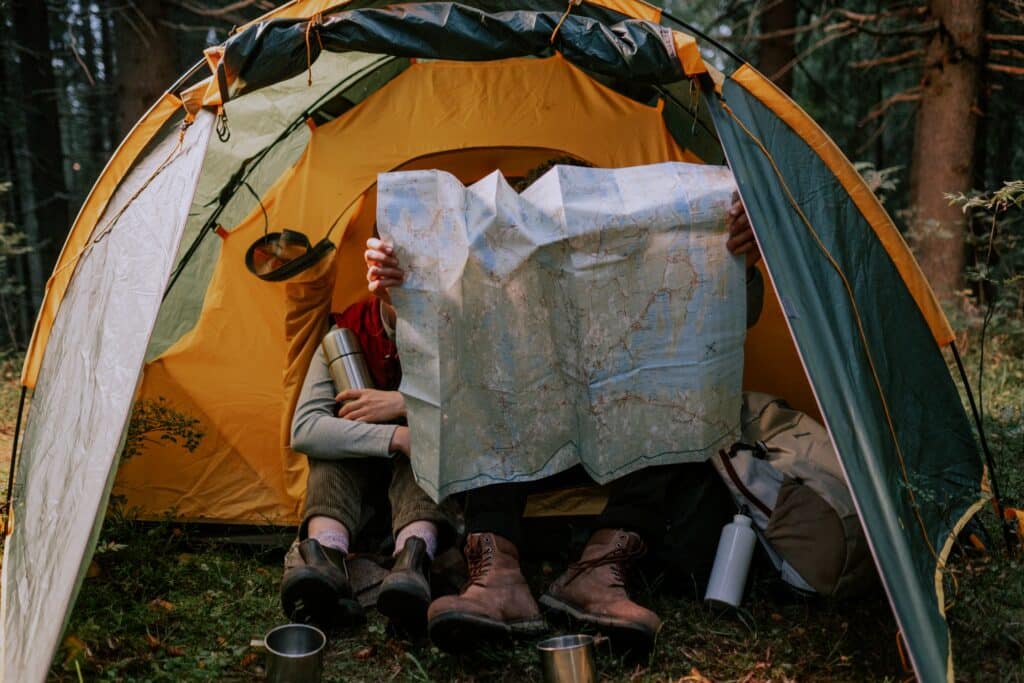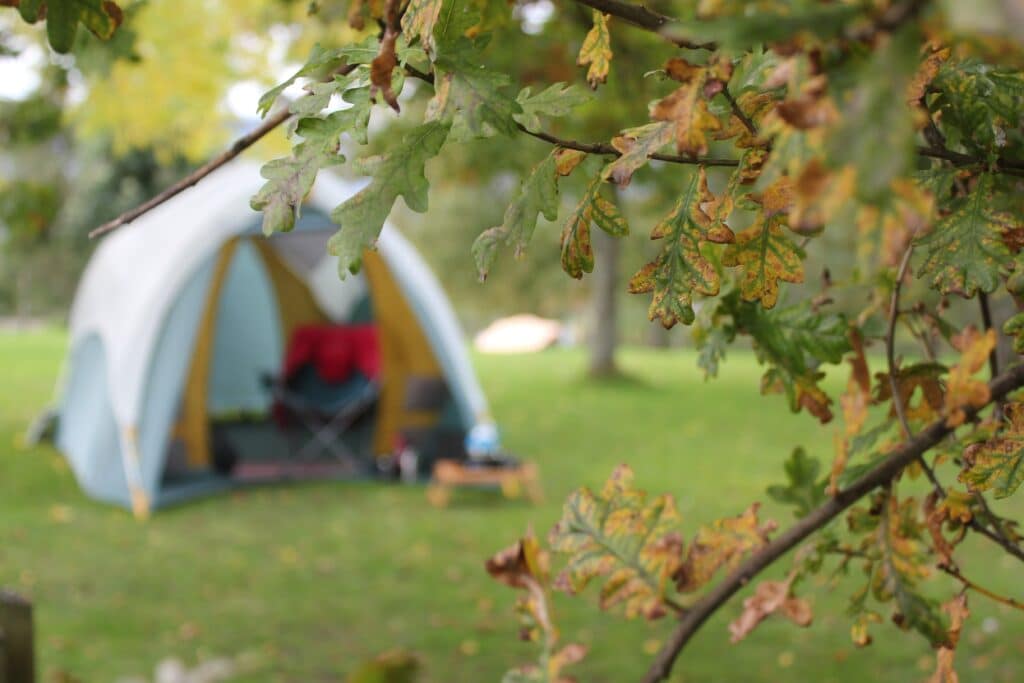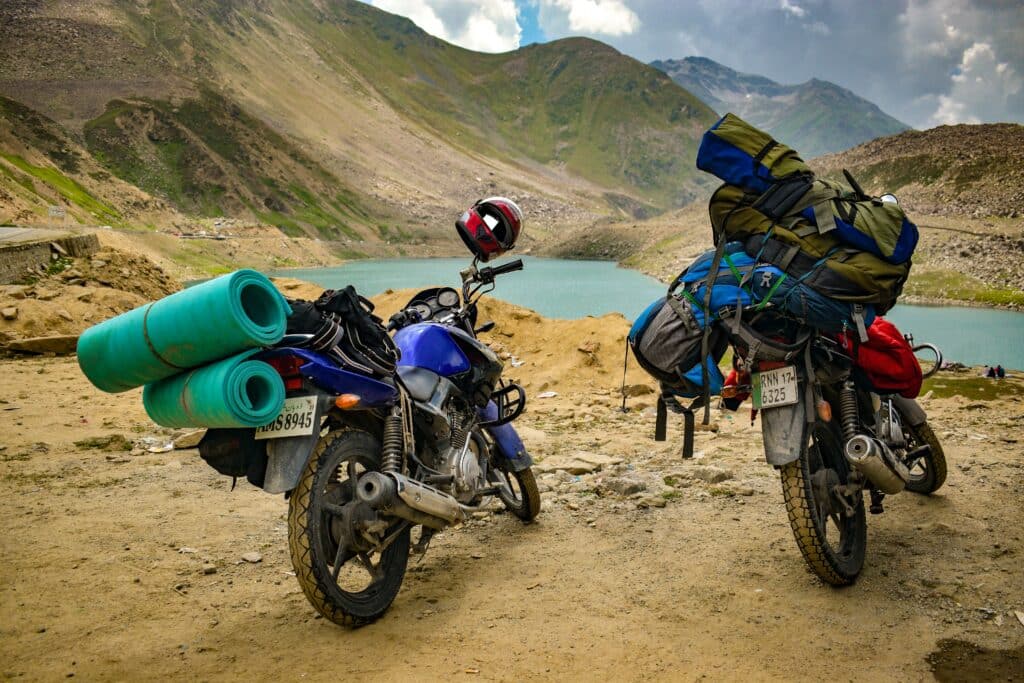UK Camping Guide
How to plan your camping trip
Planning your first camping trip can be an exciting and somewhat daunting experience. This guide will provide you with some key tips to help you plan ahead for both solo and group camping holidays with friends.

Deciding on your camping trip
Start by identifying your interests and ask yourself what do you want from your camping trip? Are you looking for a peaceful retreat close to nature, an active adventure filled with hiking, sports and exploration, or a balance of both?
Once you've identified your interests, start researching UK campsite locations that cater to those interests.
You can also explore our UK Campsite Directory to find reviews and recommendations.
Remember, your first trip doesn’t need to be too ambitious. Choose a location within a comfortable driving distance. This will not only shorten your travel time but also make it easier for you to return home if needed.
Choosing when to go
Camping is possible all year round, but for a beginner, it's advisable to start in the warmer months, typically from May to September in the UK. These months provide more favourable weather conditions and longer daylight hours for you to enjoy outdoor activities.
What are UK Campsite seasons?
In the United Kingdom, the camping season is typically divided into three main periods:
- Peak Season (High Season): This period usually runs from late May to early September. It encompasses the summer months when the weather is warmest and the days are longest. This is when most families go camping, as the school holidays fall within this period. Campsites tend to be busiest during this time, so it's recommended to book in advance.
- Shoulder Season (Mid Season): This period often includes parts of April, May, September, and October. The weather can still be quite pleasant during these months, but it's not as consistently warm or predictable as it is during the peak season. Campsites are less crowded during the shoulder season, offering a quieter camping experience.
- Off-Peak Season (Low Season): This typically covers the colder months of the year, from November through March. Some campsites close entirely during this period due to the cold weather, while others remain open for hardy campers who don't mind braving the colder temperatures. If you're camping during the off-peak season, ensure you're well-equipped with the correct clothing for cold and potentially wet weather.
Please note that the exact dates of these seasons can vary from one campsite to another. It's always best to check with the specific campsite or booking platform for the most accurate information. Also, bear in mind that prices for campsites often vary according to the season, with higher prices usually charged during the peak season.

Who to invite
Camping can be enjoyed solo, as a couple, or in a group, and it can be a fantastic way to bond with friends and family. Children in particular can benefit immensely from the hands-on experiences and skills camping can offer. Many small campsites are also pet-friendly, allowing you to bring your furry friends along.
Setting your budget
Your camping budget should cover several aspects:
- Transportation costs
- Campsite fees
- Necessary camping gear
- Food and provisions
- Extra activities and day trips
- A small buffer for unexpected costs
Remember, camping can be a budget-friendly holiday option if you plan carefully and stick to your budget. A basic camping trip can be surprisingly affordable, particularly when staying at smaller campsites, which often have lower fees than larger, more commercialised sites.
Planning your transport
The transport you choose will impact how much equipment you can bring along. If you're driving, ensure there's enough space in your car for your gear, personal belongings, and passengers. For those with limited space, consider using a roof rack or roof box.
Public transport may limit your carrying capacity but can be an excellent option if you plan to pack light and your destination is conveniently located.

Determining your camping style
Your camping style is a personal choice and will reflect what you want from your holiday. If you're seeking a digital detox, you might opt to leave tech gadgets behind. Alternatively, if you wish for some home comforts, packing items like an inflatable mattress, camping mirror or portable coffee maker could be beneficial.
When choosing a small campsite, consider the facilities you want. Some smaller campsites might offer limited amenities but offer a more tranquil and close-to-nature experience.
Final thoughts
As a beginner, it’s crucial to remember that camping is about relaxing, exploring, and enjoying the natural world at your own pace. Each trip is a learning experience. Start small, keep an open mind, and over time, you'll discover the camping style and routines that suit you best. Happy camping!